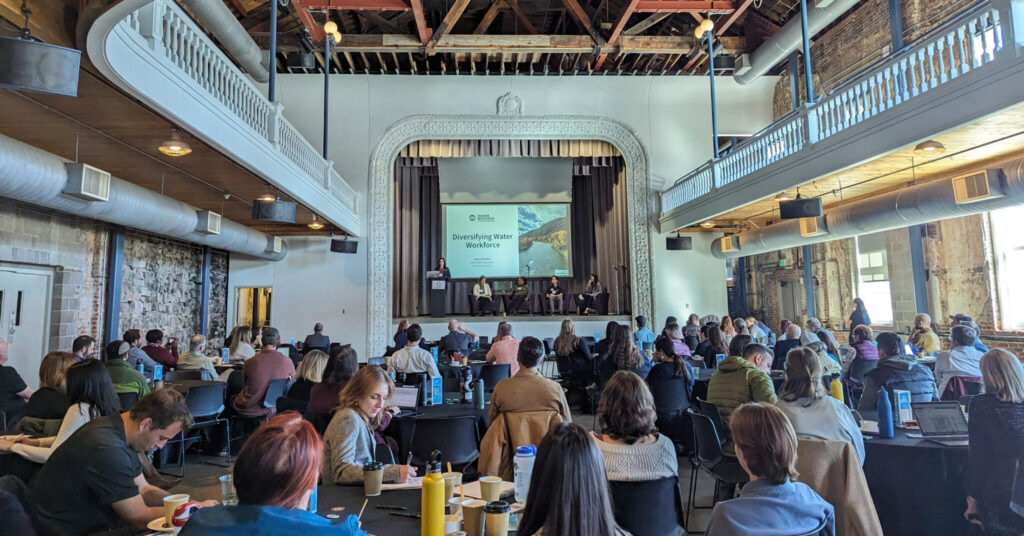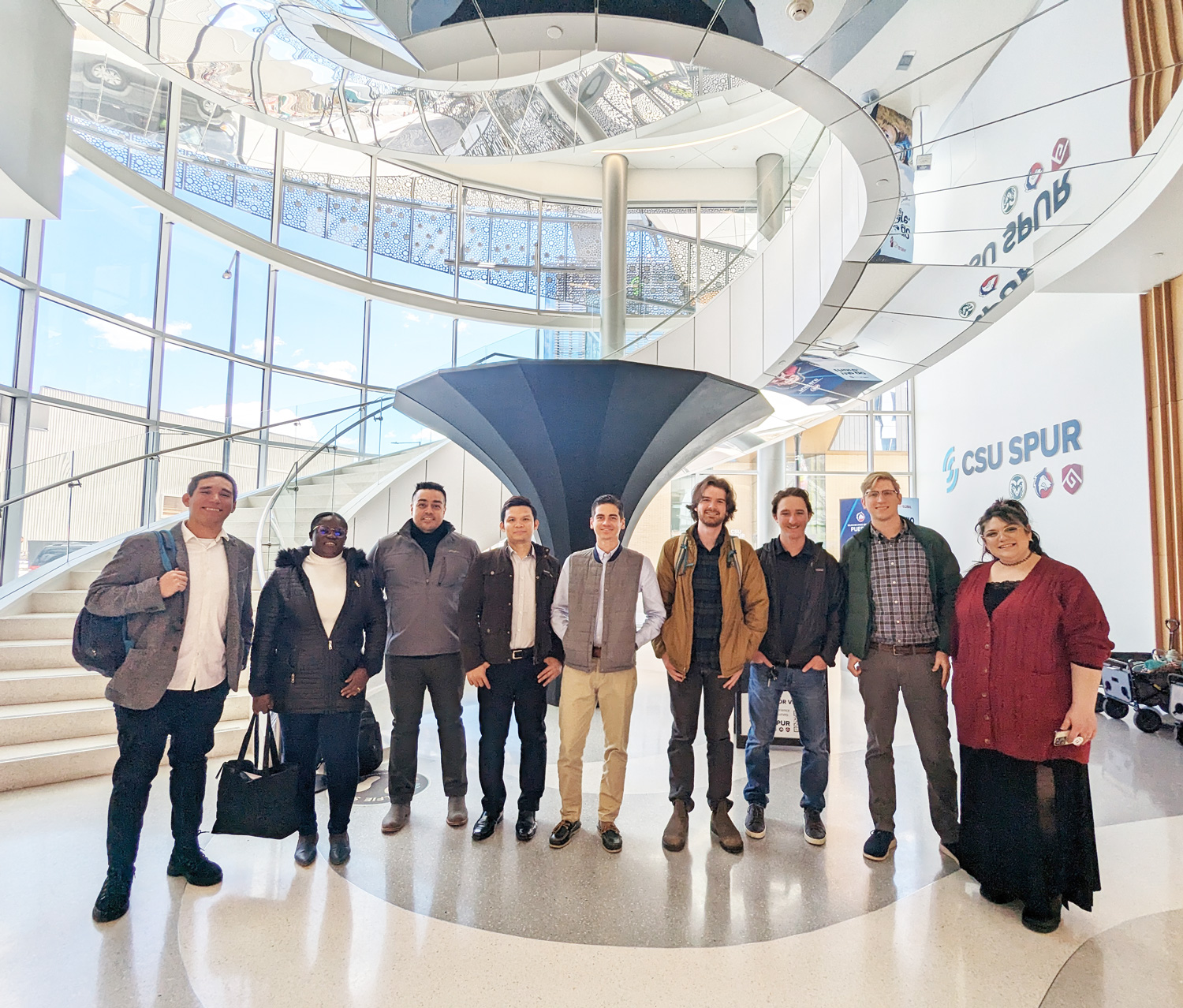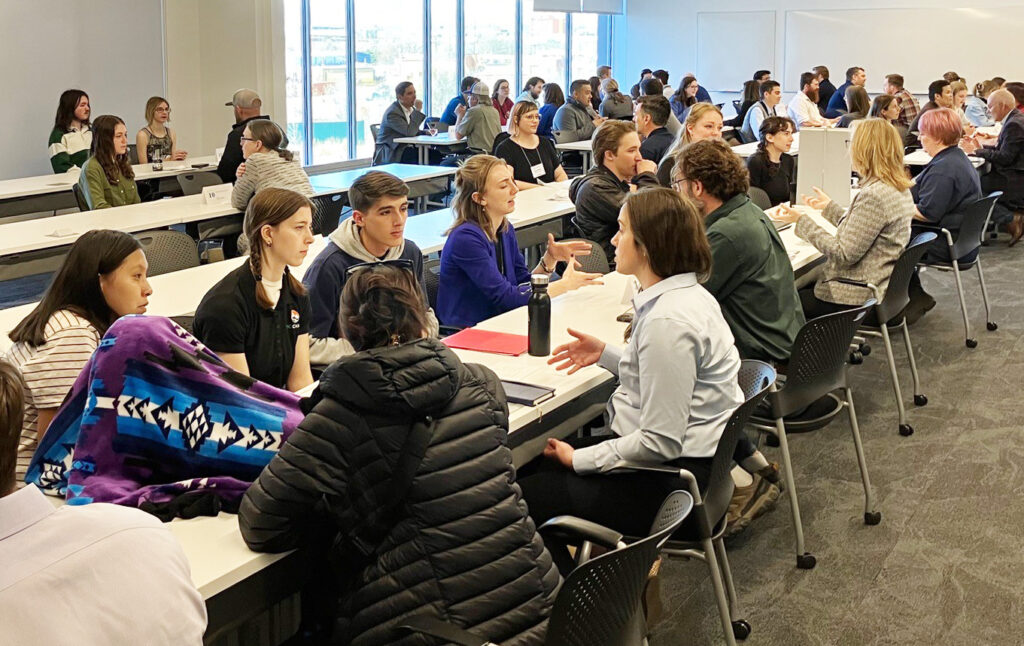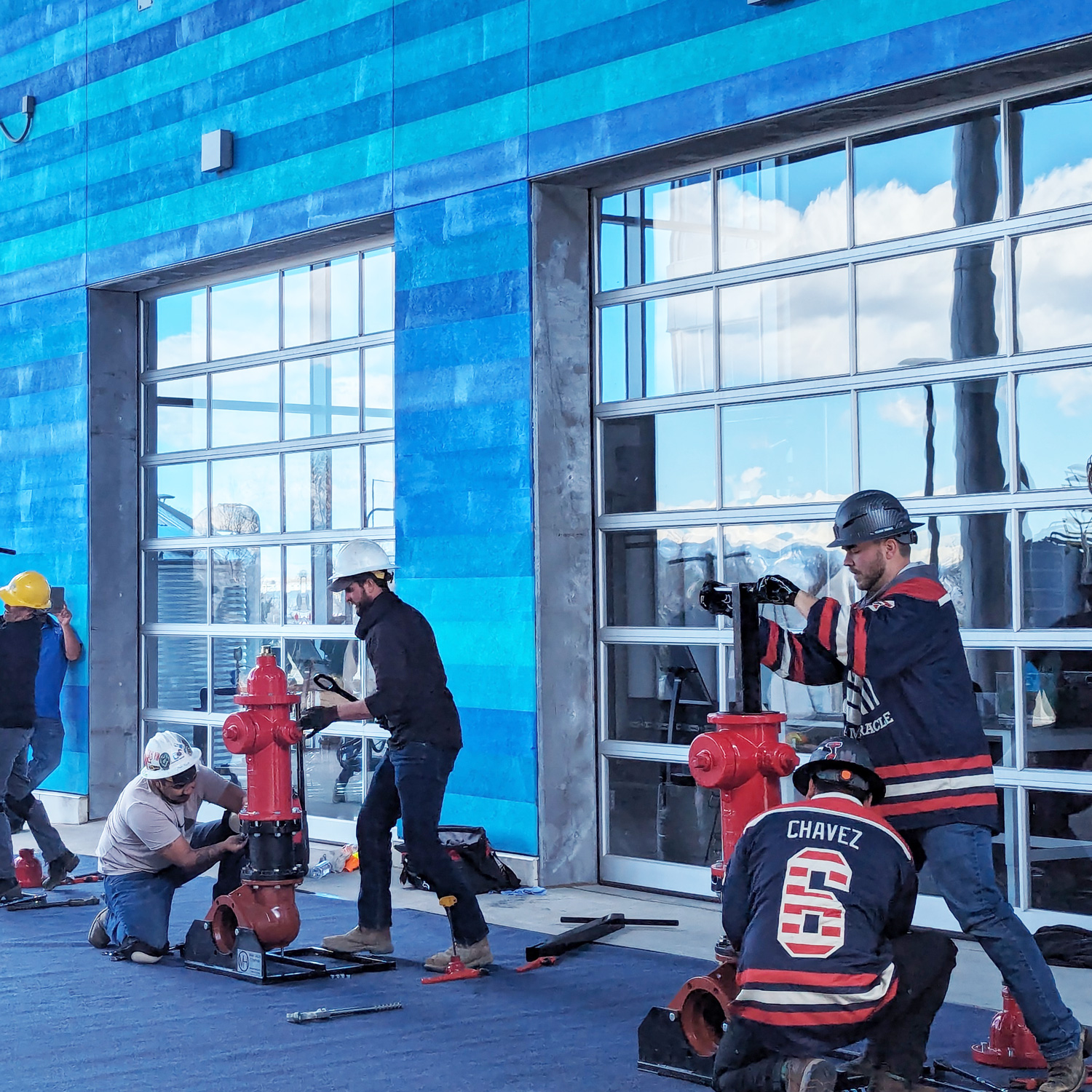Water Workforce Summit addresses critical employment challenges in Colorado

By Tory Nau
Tory Nau is a Water Workforce Program Coordinator with CSU's Colorado Water Center.

Effectively managing Colorado’s limited water supply is a constant challenge. Yet, the state’s water industry is facing its own hurdles as it tries to maintain a robust and skilled workforce.
“We see water professionals retiring at a high rate and there isn’t a strong pipeline of new employees to replace them,” said Karen Schlatter, associate director of Colorado State University’s Colorado Water Center.
“There’s an urgent need to repair our state’s aging water systems and improve water management, but we can’t do that without improving the way we engage with students and help them explore the many career paths in this field,” Schlatter said.
To help meet the needs of communities and industry employers across the state, the Colorado Water Center hosted the first ever Colorado Water Workforce Summit in Denver from April 2-3, 2024.

A primary focus of the Summit was identifying Colorado’s most pressing water workforce needs. Approximately 100 water professionals, educators and students came together on the first day of the Summit to discuss how these challenges could be addressed through education and training.
The first day featured thought-provoking panel discussions on diversifying the water workforce and successful talent development programs, while also exploring students’ perspectives and experiences.
Groups held conversations around how to best tackle water workforce issues all the way from K-12 education to college, as well as through apprenticeships and on-the-job training.
Supporting the next generation of water professionals
The second day of the Summit was held at CSU Spur Hydro and offered a career and education fair designed to connect high school and college students with water-related employment and training opportunities in Colorado.
A highlight of the Water Fair was a targeted “speed dating” student-professional networking session where students were paired with water professionals for targeted, in-depth conversations on water careers.

“The professionals that I was matched with allowed me great insight into the opportunities available, and their insights within their own experiences and career. The environment for the overall career fair was very welcoming.”
Student Participant
Additionally, the Rocky Mountain Section of American Water Works Association organized a “Hydrant Hysteria” competition with teams from Denver Water and Westminster competing to see who could assemble a fire hydrant the fastest and most accurately.

Overall, the Summit provided an opportunity for a diverse range of participants to share ideas and work together to address the challenges facing the water workforce.
Schlatter, who also served as the Water Workforce Summit chair, noted that while the Summit was a critical step to establish connections and foster dialogue, “there remains a lot of work to be done in terms of building partnerships and scaling up innovative career pathway programs to address water workforce issues.”
The Colorado Water Center is identifying next steps as a result of the Summit, including ideas like a “water education hub” for K-12 educators and potential focus group discussions to take a deeper dive into the issues.